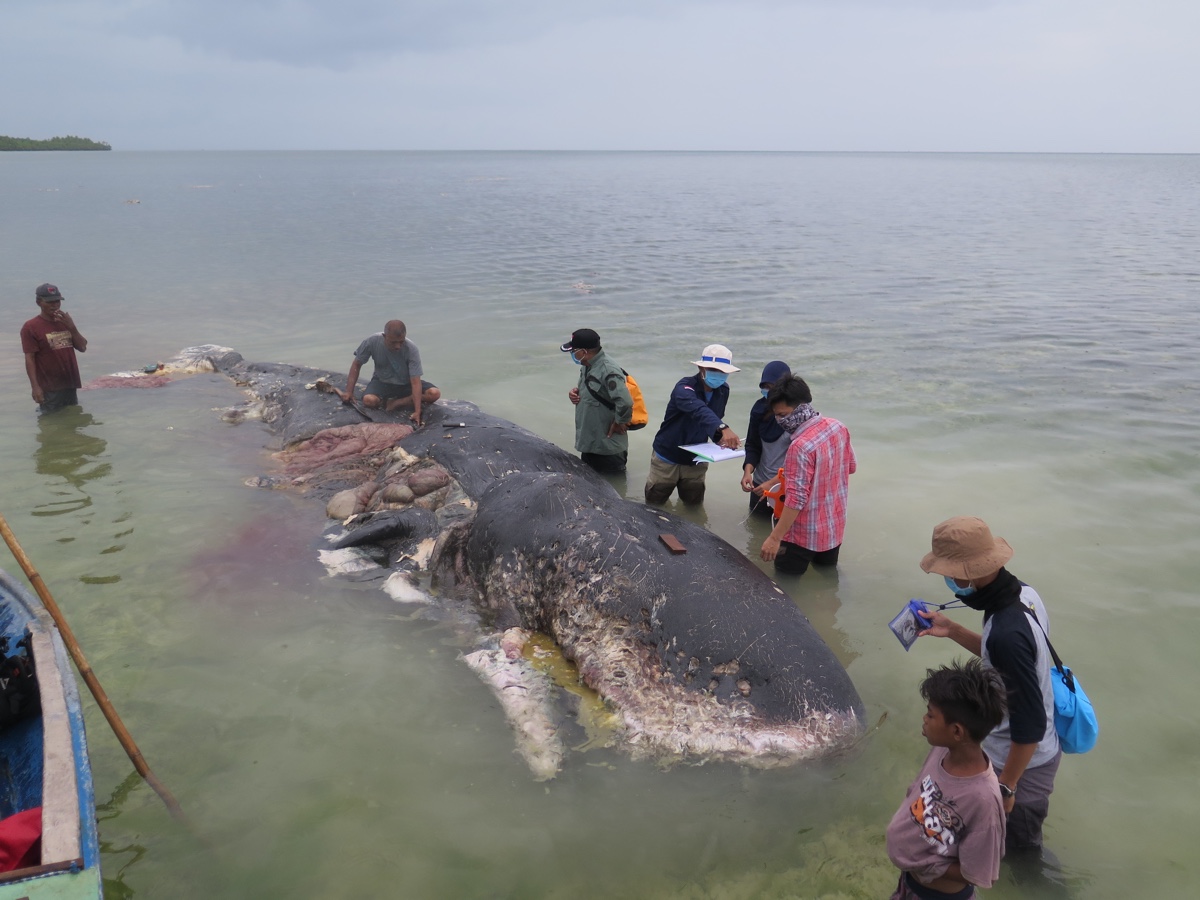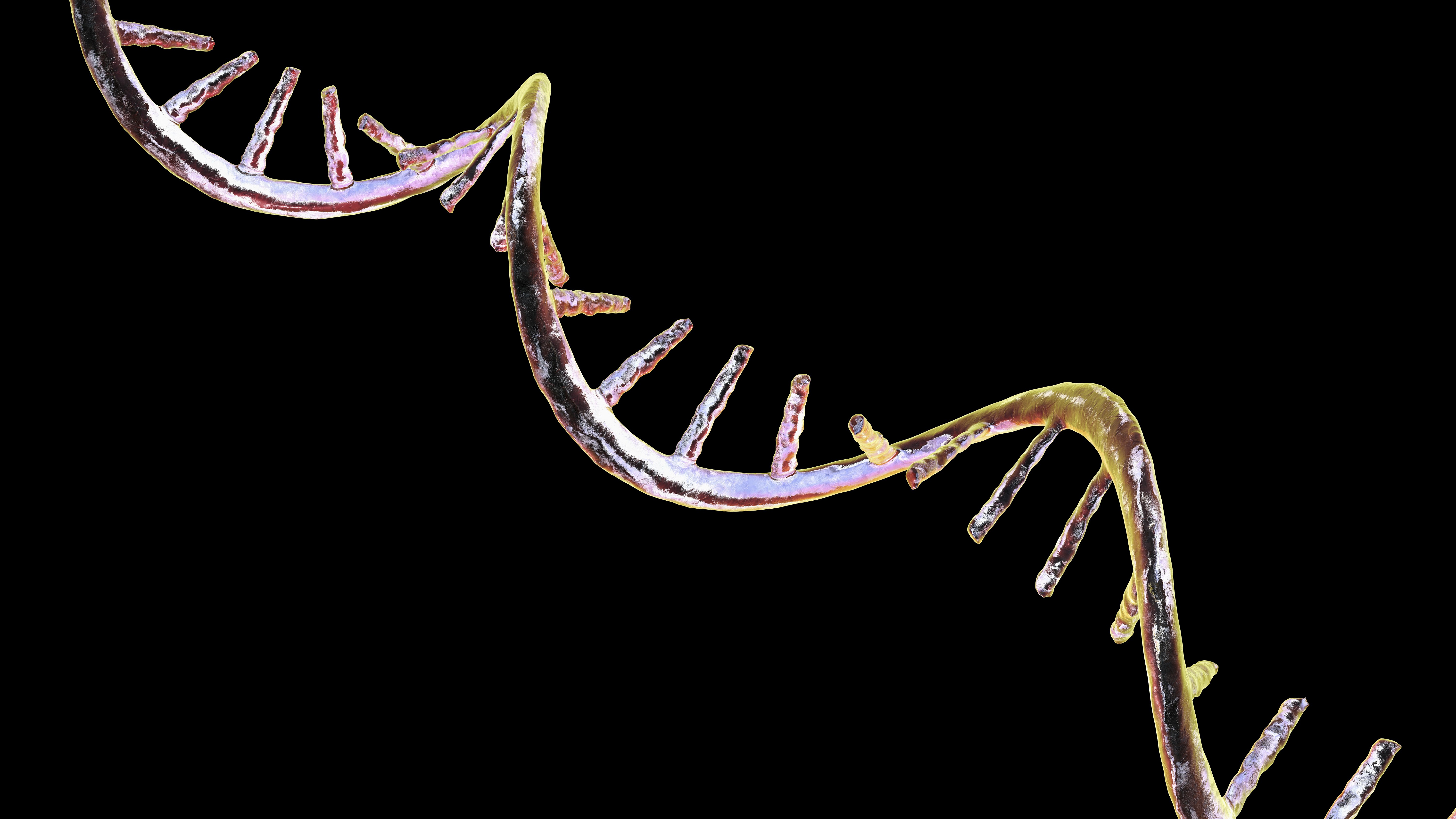Found, Inside Dead Sperm Whale: 100 Plastic Cups, 4 Plastic Bottles, 25 Plastic Bags, 2 Flip-Flops

The stomach of a whale is bound to be pretty gross — all those giant intestines and immense amounts of blood — but now officials have found nearly 13 pounds (6 kilograms) of plastic trash in the stomach of a dead sperm whale that washed ashore on a beach in southern Indonesia late Monday (Nov. 19).
The trash included more than 100 plastic cups, four plastic bottles, 25 plastic bags, two flip-flops and hundreds of other pieces of plastic, WWF-Indonesia said in a Facebook statement.
The 31-foot-long (9.5 meters) whale was in such an advanced state of decay by the time it washed up on the beach that it was impossible for researchers to determine if the enormous lump of plastic was what ultimately killed the animal.
"Although we have not been able to deduce the cause of death, the facts that we see are truly awful," Dwi Suprati, a marine species conservation coordinator at WWF-Indonesia, told the Associated Press. [Whale Album: Giants of the Deep]
Sperm whales (Physeter microcephalus) are the only living species of their genus and the largest living species of toothed whales. Adult females reach up to 36 feet (11 m) in length and weigh some 13 to 14 tons (11.7 to 12.7 metric tons), while adult males are far bigger, growing to 59 feet (18 m) long and weighing 35 to 45 tons (31.7 to 40.8 metric tons), according to the American Cetacean Society (ACS).
These marine giants primarily feed on deep-water squid, fish, rays and octopus and consume about 2,000 lbs. (907 kg) of food each day, according to the ACS. And, it appears plastic is becoming a more common part of their diet.
Earlier this year, another dead sperm whale washed up on the coast of Spain, likely killed by the 65 lbs. (29 kg) of plastic trash discovered in its gut.
Get the world’s most fascinating discoveries delivered straight to your inbox.
Sperm whales are found throughout the world's oceans and it's no surprise that they'd be cruising around Indonesia. The country is smack in the middle of the so-called Coral Triangle — a hotspot of marine diversity and the area with the highest risk of plastic pollution in the marine environment, according to a 2017 study published in the Proceedings of the International Conference on Microplastic Pollution in the Mediterranean Sea.
Since 2010, Indonesia has ranked as the second-highest plastic-polluting country in the world after China; it produces more than 3 million tons of plastic waste per year, according to a 2015 study published in the journal Science.
Indonesia's coordinating minister of maritime affairs, Luhut Binsar Pandjaitan, told the AP that the dead sperm whale should inspire the country's government and its citizens to significantly reduce plastic use.
He said the government is working to urge shops to discontinue use of plastic bags and for communities to educate students nationwide about the problem. The Indonesian government aims to reduce plastic use by 70 percent by 2025, the AP reported.
"This big ambition can be achieved if people learn to understand that plastic waste is a common enemy," Pandjaitan said.
- In Photos: World's Most Polluted Places
- In Images: The Great Pacific Garbage Patch
- In Photos: Spooky Deep-Sea Creatures
Originally published on Live Science.

Kimberly has a bachelor's degree in marine biology from Texas A&M University, a master's degree in biology from Southeastern Louisiana University and a graduate certificate in science communication from the University of California, Santa Cruz. She is a former reference editor for Live Science and Space.com. Her work has appeared in Inside Science, News from Science, the San Jose Mercury and others. Her favorite stories include those about animals and obscurities. A Texas native, Kim now lives in a California redwood forest.


